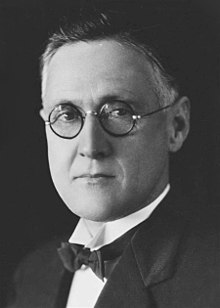Division of Makin
| Makin Australian House of Representatives Division | |
|---|---|
Map Interactive map of boundaries | |
| Created | 1984 |
| MP | Tony Zappia |
| Party | Labor |
| Namesake | Norman Makin |
| Electors | 123,243 (2022) |
| Area | 130 km2 (50.2 sq mi) |
| Demographic | Outer metropolitan |
The Division of Makin is an electoral division for the Australian House of Representatives located in the northeastern suburbs of Adelaide. Makin was established in the South Australian redistribution of 3 September 1984 and named after MP and diplomat Norman Makin. The Division of Makin consists of part of the City of Port Adelaide Enfield, part of the City of Salisbury and part of the City of Tea Tree Gully.
Geography
[edit]The 130 km2 seat covers an area from Little Para River and Gould Creek in the north-east to Grand Junction Road in the south and Port Wakefield Road in the west, including the suburbs of Banksia Park, Fairview Park, Golden Grove, Greenwith, Gulfview Heights, Ingle Farm, Mawson Lakes, Modbury, Para Hills, Para Vista, Pooraka, Redwood Park, Ridgehaven, Salisbury East, Salisbury Heights, St Agnes, Surrey Downs, Tea Tree Gully, Valley View, Vista, Walkley Heights, Wynn Vale, Yatala Vale, and parts of Gepps Cross and Hope Valley.
History
[edit]Since 1984, federal electoral division boundaries in Australia have been determined at redistributions by a redistribution committee appointed by the Australian Electoral Commission. Redistributions occur for the boundaries of divisions in a particular state. They occur every seven years, or sooner if a state's representation entitlement changes, or when divisions of a state are malapportioned.[1]

The Division Makin was established in the South Australian redistribution of 3 September 1984 and named in honour of the Hon. Norman John Oswald Makin AO, 1889-1982. Makin was a Member of the House of Representatives for a total of 36 years (1919-46 and 1954-63) and Speaker of the House of Representatives (1929-31). He was the first President of the United Nations Security Council in 1946, and served as Ambassador to the United States from 1946 to 1951. [2] The electorate was a marginal mortgage belt seat, with a higher proportion of the population in the area paying off home loans. In the 2006 census, over 42 percent of the seat's electors had a home mortgage, ranking it 19th highest in Australia's 150 seats.[3]
Created ahead of the 1984 election as a notionally fairly safe Labor seat, Labor won marginally. For the first quarter-century of its existence, the seat was a bellwether seat held by the party of government, both often typical of mortgage belt seats. During this time, it was usually marginal, with neither party winning more than 54 percent of the two-party vote.
Later years
[edit]Labor's Tony Zappia won the seat at the 2007 election, with a fairly safe 57.7 percent two-party vote against Liberal candidate Bob Day. A wider 8.6 percent two-party swing won Labor government, the largest two-party vote and swing of any party in Makin's history at the time. Zappia won enough primary votes to take the seat on the first count, the first time a candidate won a majority of the primary vote in Makin.
At the 2010 election, Zappia technically made it a safe Labor seat with a 62.2 percent two-party vote, again the strongest result for any party in Makin's history. Even though Mawson Lakes was added to Makin in a redistribution, Zappia held the seat at the 2013 election with a reduced marginal 55.1 percent two-party vote even as Labor lost government, becoming the first opposition member in Makin's history. He consolidated his hold on the seat at the 2016 election with a 59.5 percent two-party vote.
Bellwether seat
[edit]ABC psephologist Antony Green listed Makin as one of eleven which he classed as bellwether electorates in his 2016 election guide. Notably, Makin was the only bellwether located outside of New South Wales and Queensland.[4]
Members
[edit]| Image | Member | Party | Term | Notes | |
|---|---|---|---|---|---|

|
Peter Duncan (1945–) |
Labor | 1 December 1984 – 2 March 1996 |
Previously held the South Australian House of Assembly seat of Elizabeth. Served as minister under Hawke. Lost seat | |

|
Trish Draper (1959–) |
Liberal | 2 March 1996 – 17 October 2007 |
Retired | |

|
Tony Zappia (1952–) |
Labor | 24 November 2007 – present |
Incumbent |
Election results
[edit]| Party | Candidate | Votes | % | ±% | |
|---|---|---|---|---|---|
| Labor | Tony Zappia | 49,843 | 46.30 | −2.12 | |
| Liberal | Alan Howard-Jones | 33,840 | 31.44 | −1.44 | |
| Greens | Emma Mustaca | 12,317 | 11.44 | +2.81 | |
| One Nation | Rajan Vaid | 5,097 | 4.74 | +4.74 | |
| United Australia | Kimberley Drozdoff | 4,638 | 4.31 | −2.13 | |
| Australian Federation | Abram Lazootin | 1,907 | 1.77 | +1.77 | |
| Total formal votes | 107,642 | 95.87 | +0.36 | ||
| Informal votes | 4,639 | 4.13 | −0.36 | ||
| Turnout | 112,281 | 91.20 | −1.92 | ||
| Two-party-preferred result | |||||
| Labor | Tony Zappia | 65,444 | 60.80 | +1.08 | |
| Liberal | Alan Howard-Jones | 42,198 | 39.20 | −1.08 | |
| Labor hold | Swing | +1.08 | |||
Graphs are unavailable due to technical issues. There is more info on Phabricator and on MediaWiki.org. |
Graphs are unavailable due to technical issues. There is more info on Phabricator and on MediaWiki.org. |
See also
[edit]References
[edit]Notes
[edit]- ^ Muller, Damon (14 November 2017). "The process of federal redistributions: a quick guide". Parliament of Australia. Retrieved 19 April 2022.
- ^ "Norman Makin, South Australian MP, first president of first UN security council in 1946; first ambassador to US".
- ^ Megalogenis, George. "2006 census, customised tables commissioned by The Australian". The Australian. News Limited. Archived from the original on 18 November 2007. Retrieved 25 November 2007.
- ^ The Bellwether Contests: Antony Green ABC
- ^ Makin, SA, 2022 Tally Room, Australian Electoral Commission.


